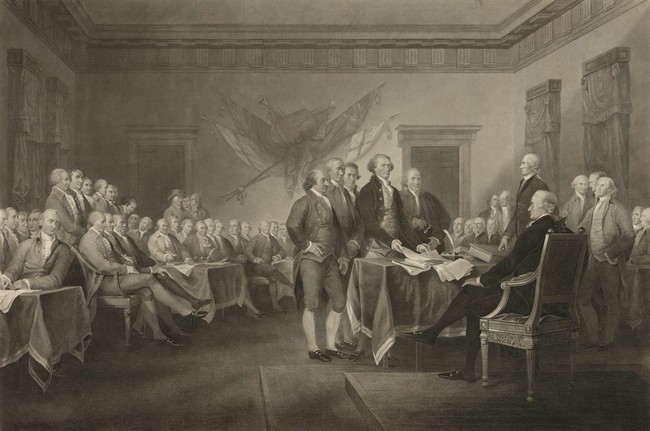
The United States is a unique nation for many reasons, one being that its founding, based on the novel ideas of individual liberty and limited government, remains unlike any other country before or since. The Founding Fathers envisioned a government that balanced the will of the majority coupled with the protection of minority rights. They carefully designed a constitutional republic in order to avoid the pitfalls of pure democracy. So, does the growing trend of ballot initiatives undermine the foundation of America’s founding principles?
Interestingly, ballot initiatives were rarely used in the late 18th and 19th centuries. During the Progressive era, in the early 20th century, is when the use of ballot initiatives began in earnest. Originally, ballot initiatives were supposed to give the people more power by allowing them to have direct input on a variety of public policy issues.
However, as some argue, the increased use of ballot initiatives, especially in the late 20th century, has diminished the notion of the United States operating as a representative republic in which voters elect lawmakers to represent their interests.
In a pure or direct democracy, theoretically, the majority rules. However, would you like to live in a society where the whims of the majority could possibly dictate every aspect of life, even at the expense of minority and personal property rights, as well as long-term stability?
Make no mistake, this is not a theoretical concern.
In 2024, Oregon voters will decide on a ballot initiative that would “raise corporate taxes [and] give every Oregonian $750.” Do we want to live in a nation wherein a slight majority of the people of a state or locality can inflict taxes upon others to their exclusive benefit?
In 2023, Ohio voters enshrined abortion into their constitution through a ballot initiative. The vaguely worded amendment was voted on by only 33 percent of the total population of the state and approved by only 18 percent of the population of the state. It was a seismic change that most likely would not have survived the legislative process.
The beauty of our constitutional republic lies in its guardrails against a so-called mobocracy, or rule by the masses. In the United States, elected representatives deliberate, debate, and craft laws that consider a wide array of diverse viewpoints. This system employs checks and balances to prevent the tyranny of the majority while ensuring that minority rights are protected. It also incentivizes compromise so that a variety of interests are represented in the end.
Ballot initiatives bypass this deliberative process, allowing laws to be made based solely on the majority’s immediate desires without the same level of scrutiny, balance, and expertise.
Speaking of expertise, everyday citizens are not immersed in the complexity of public policy and the unintended consequences of ideas that, on the surface, could appear to be a no-brainer. There’s a reason that legislation is often many pages long and includes detailed definitions and references, while a ballot initiative must be boiled down to a simple “yes” or “no” question. The result of this boiling down of complex issues is often ambiguous, leading to confusion and distrust.
Because of this, ballot initiatives face a higher likelihood of being challenged in court compared to laws passed through a state’s legislature. For instance, according to a recent study, “Over 400 initiatives have been passed by popular vote in 23 states since the 1960s. One-third of the ballot propositions have been challenged in the courts, and over half of the challenges have ended in the courts striking down or amending the proposition.”
The outsized influence of special interest groups on ballot initiatives is another element to be considered. These groups often have the resources to sway public opinion through extensive advertising campaigns, sometimes leading to outcomes that favor politically connected, well-funded, special interest groups. For example, in the 2018 Idaho Medicaid expansion ballot initiative, one of the main players was Luke Mayville, co-founder of the radical leftist organization Reclaim Idaho.
Wantonly incorporating ballot initiatives into our political system threatens the very fabric of our constitutional republic.
It’s time for citizens and lawmakers alike to educate themselves on America’s founding principles and to understand why we are a constitutional republic—not a direct democracy. Let’s honor the foresight of our Founding Fathers by preserving the balanced, thoughtful governing structure they entrusted us to maintain for generations to come.
Brady Smith ([email protected]) is a policy advisor with The Heartland Institute.
